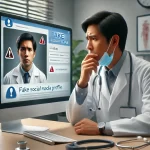Advocates has long championed social media as a tool for patient education in healthcare. Social media was taunted to increase meaningful patient engagements, an increase health practitioners’ and patient collaborations that would result to improvements in the various facets of healthcare- from physician-patient relationships, quality point of care to increase in surveillance of less familiar but equality important health disease and issues. The use of social media for health education also enabled patient’s (or his / her support community) navigate a complex rapidly changing health system and thus improve his or her quality of life.
Patient health education via social media needed a critical reflection however. Although there are studies looking at its effect as a tool for health learning, the results are quite inconclusive. Is it the methods of teaching? The target learner? Or are the the metrics used? There seem to be a confusion on what constitute an effective social media tool for health learning in the general populace.
From an educators standpoint, the use social media as a tool for learning is a characteristic of connectivist pedagogy of teaching and learning. This theory came about as a result of rapidly changing, many-to-many type of communication and web 2.0 (social media) technologies. If social media is to be effectively used as a tool for teaching and learning of patients in healthcare, one must learn the nuance of this pedagogy and the context of what a typical (Filipino) health learner is. Also, such learning does and goes beyond formal traditional, institutional learning that we knew and have gone through. This author believe, such belong to lifelong learning and is a must learn for healthcare educators to be effective.
Or, we get fake news, misinformation and worst harm patients and the general public with its inappropriate use
In this chat,#HealthXPh will discuss health educational technologies and designs with educational healthcare social media pioneers to find that appropriate method of using social media as a tool for health education. Thus, the objectives of this discussion/chat are
(1) Characterise what constitute typical (Filipino) health learner that are probably receptive to social media as a tool for healthcare learning.
(2)Identify educational designs (or pedagogies) of teaching and learning that are appropriate for patient education in the context of health.
(3) Give example of patient learner education design that you ( or someone you know) effectively applied in practice.
The following are the guide questions for our chat:
T1. What characterize a typical health learner that is receptive to social media as a tool for learning?
T2. What teaching and learning strategy that uses social media as tool is most apt for this typical health learner?
T3. Give a health teaching strategy using social media that you have applied to practice? What were the results?
I am aware that objectives and question number one are often labelled as stereotyping. For most educators, contextualizing learning to a particular set of learners is a must to be effective. Thats all there is to “characterising learners” in education.
Join us later 9:00 PM Manila time as #HealthXPh listens to experts as we discuss patient health education via social media!




